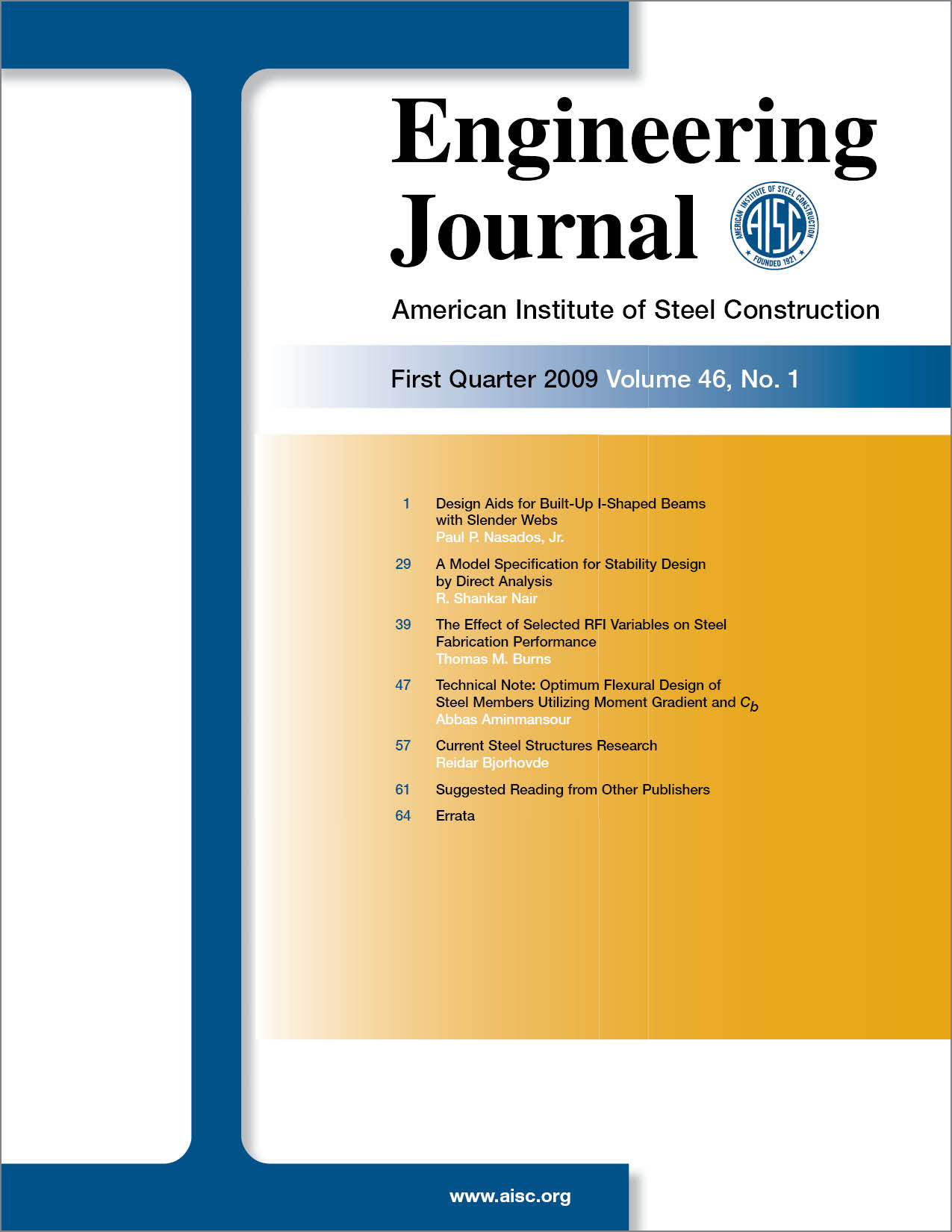The Effect of Selected RFI Variables on Steel Fabrication Performance
DOI:
https://doi.org/10.62913/engj.v46i1.949Keywords:
Fabrication, Quality Assurance and Control, Economy (Cost)Abstract
The steel fabrication process depends upon documentation that is often in need of clarification due to issues involving completeness and coordination. Clarification is obtained by the steel fabricator through the request for information (RFI) process which allows the shop drawing production process to continue forward. The volume of requests for information sought, as well as time required to receive clarification, are just two of many variables that may influence shop drawing production as well as subsequent fabrication activities. This research identifies specific RFI variables and their significant relationship with shop drawing production and fabrication duration performance. Data from 48 projects were collected from steel fabricators throughout the United States. Regression techniques identified two variables, the RFI performance indicator and the average RFI response time, as significant predictors for both shop drawing production and fabrication duration performance measures. Within the 48 projects studied, approximately 25% of the performance variability in shop drawing production was explained by these two variables. The generalized model developed from these results may be applied by individual steel fabricators interested in performance improvement through RFI management. Project databases using RFI metrics could benefit fabricators by establishing performance thresholds while also providing engineers with a quality service indicator.

